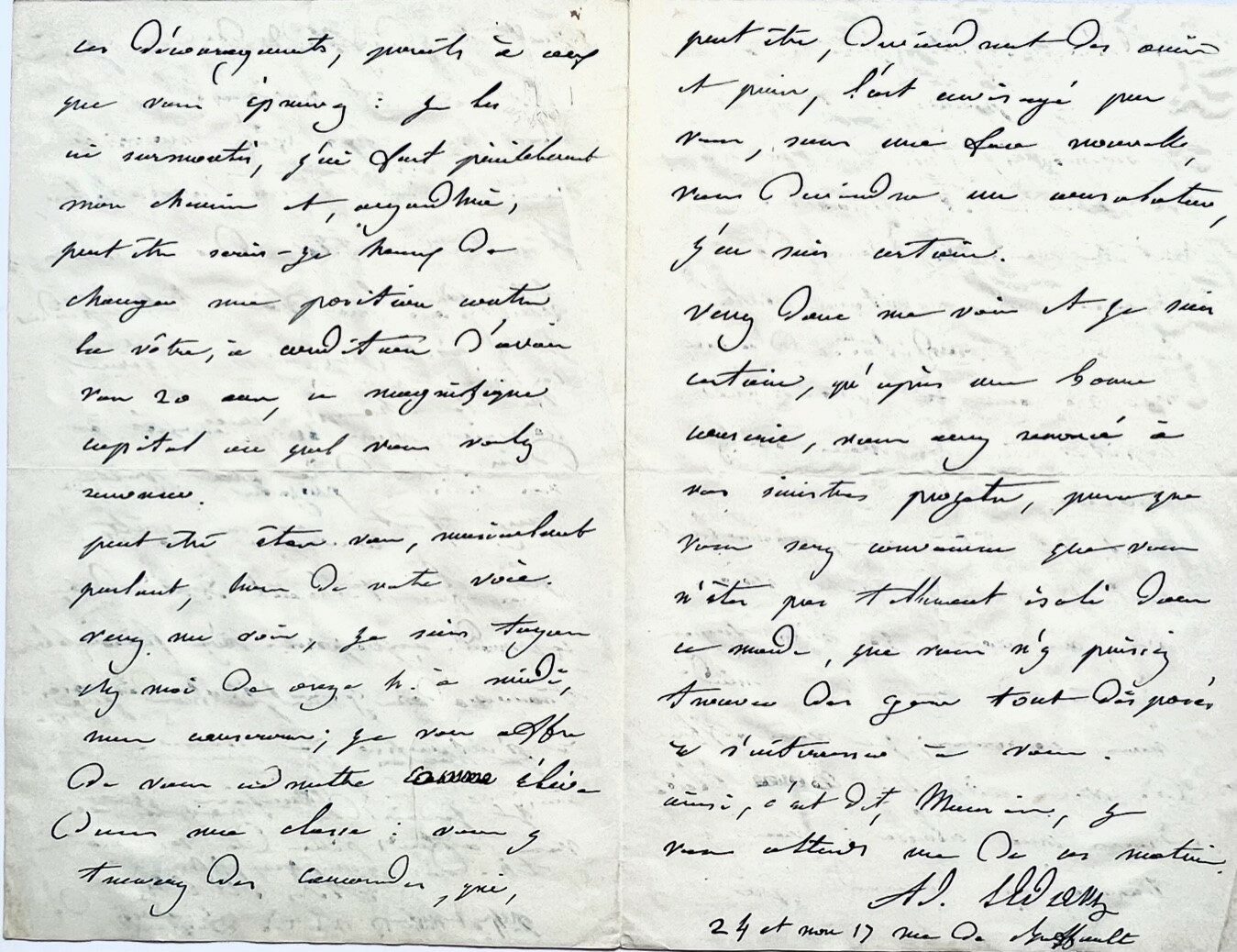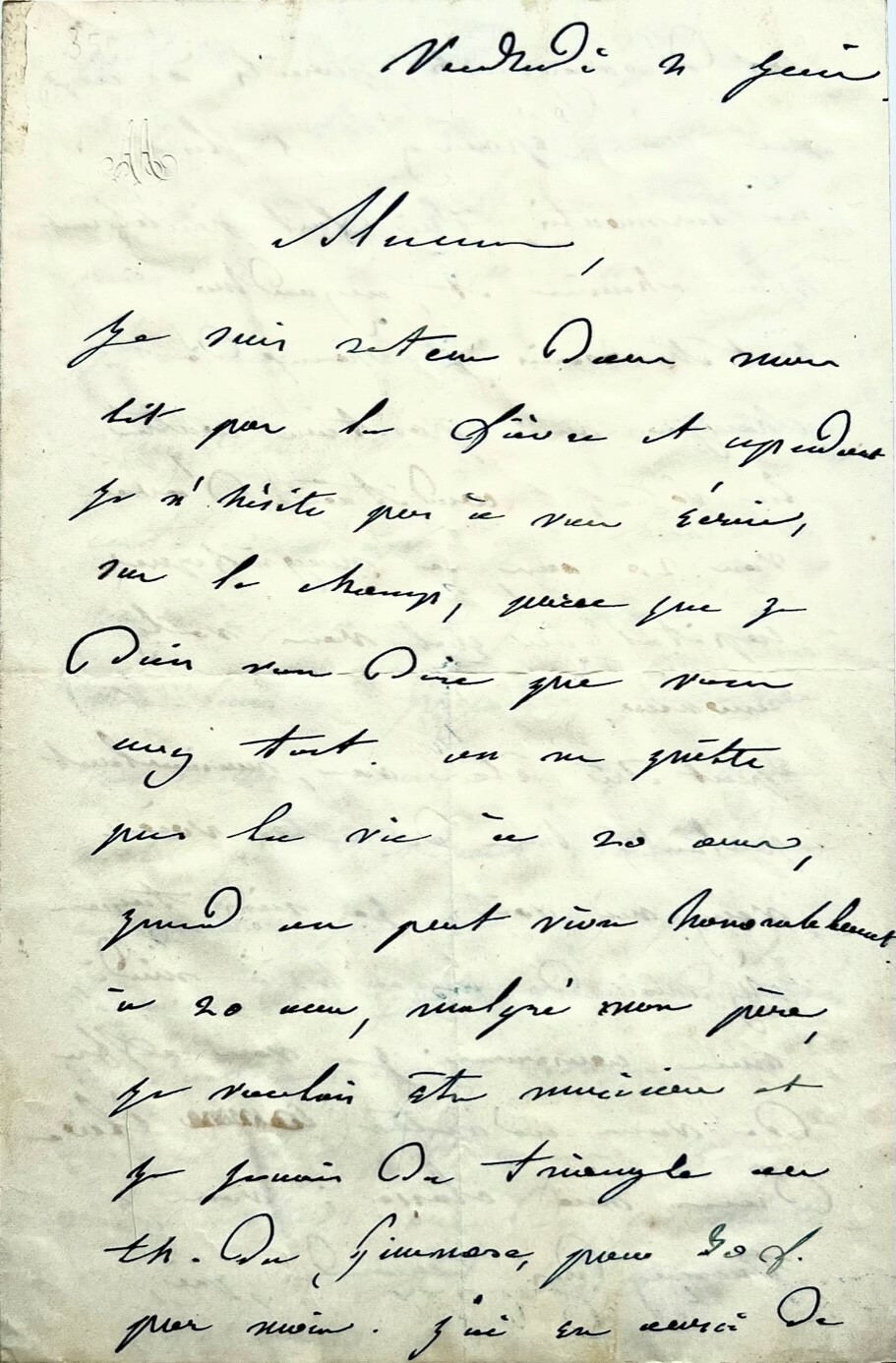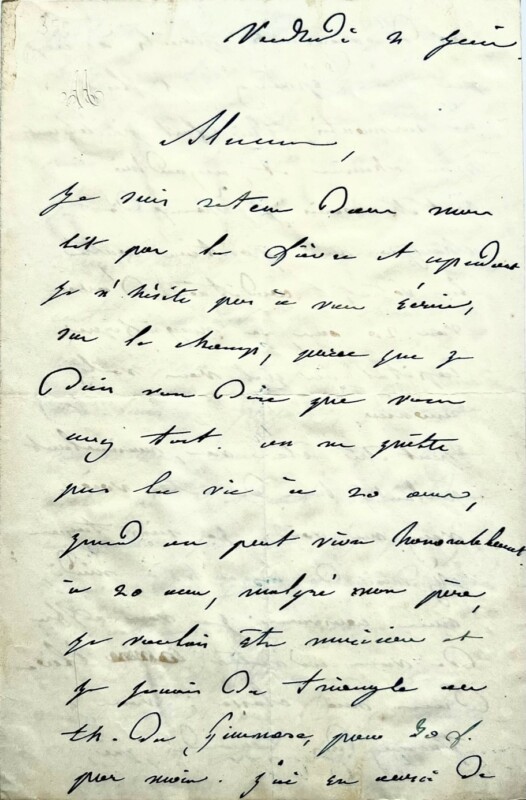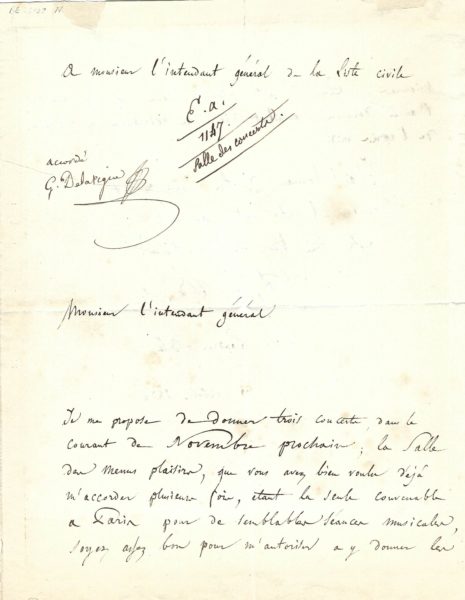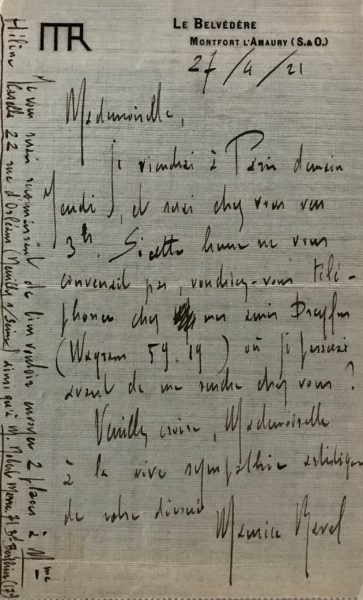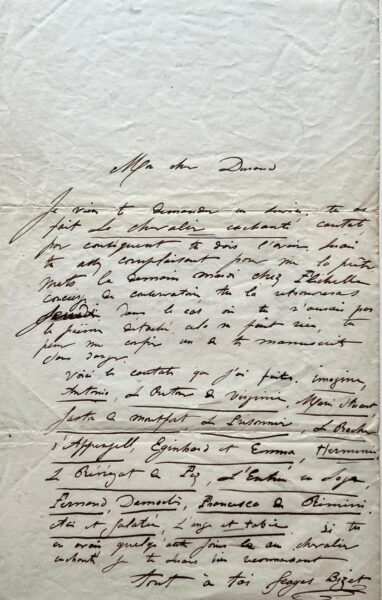Perhaps, from the musical point of view, you have strayed from your path. Come and see me. I am always at home between 11 a.m. and noon; we can talk. I am prepared to take you on as a pupil in my class. There you would find fellow pupils who could perhaps become friends. Also, the art that you envisage would, from a different aspect, become a consolation. I am sure of it.
Come and see me, then, and I am sure that after a good chat, you will have given up your sinister plans. You will have been convinced that you are not alone in the world and that it is a place where you can find people just waiting to take an interest in you.
So, it is agreed, Sir, I will expect you one morning…24 and not 17 rue du Chaffault [?]”
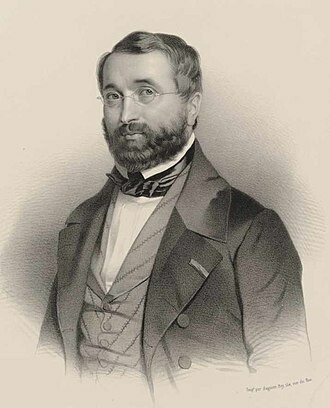
Adolphe Adam
The son of French composer and pedagogue, Louis Adam, Adolphe frustrated his father’s efforts to educate him on matters of music theory, instead playing by ear. Although a poor student, he eventually enrolled at the Paris Conservatoire and pursued a musical career against his father’s wishes. By the time he was 20, he was giving music lessons and writing songs for vaudeville theaters to support himself. Our letter reflects on an unpaid position he was offered by chorus master Duchaume to play the triangle in the orchestra of the newly formed Théâtre du Gymnase, which Adam considered a significant event in his life, noting in his biography, “I made acquaintances and friendships with actors and writers; that was, in a word, my starting point. Duchaume died, and I succeeded him as timpanist and chorus master, at a salary of six hundred francs a year. It was a fortune. I no longer gave thirty-sous lessons, and I wrote a little less trashy music,” (Souvenirs d’un Musicien, Adam).
Adam had a successful career as a prolific composer, whose best-known works are Le Chalet; Le postillon de Lonjumeau; Le Corsair; Giselle; and his Christmas carol, Minuit, chrétiens! known in English as O Holy Night. However, Adam suffered a reversal of fortune after an 1845 falling out with the new director of the Opéra-Comique who refused to stage any of his works. Adam responded by establishing the Opéra-National, the cost of which put him deeply in debt. The 1848 Revolution further worsened his financial situation, which he attempted to resolve by teaching and writing reviews.
Written on the first three leaves of a folded sheet. Folded with normal wear and in fine condition.

